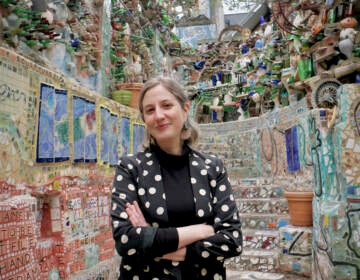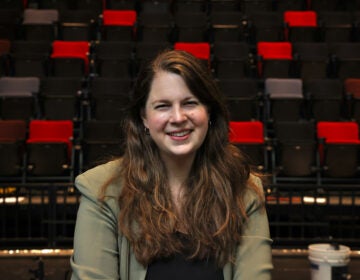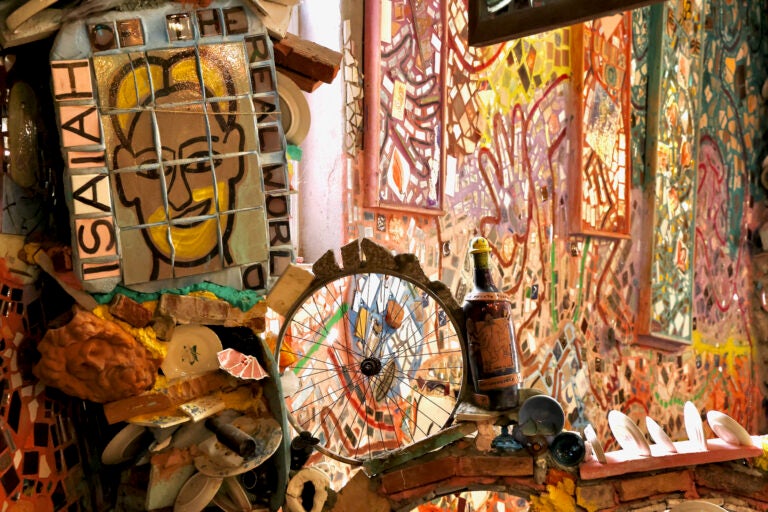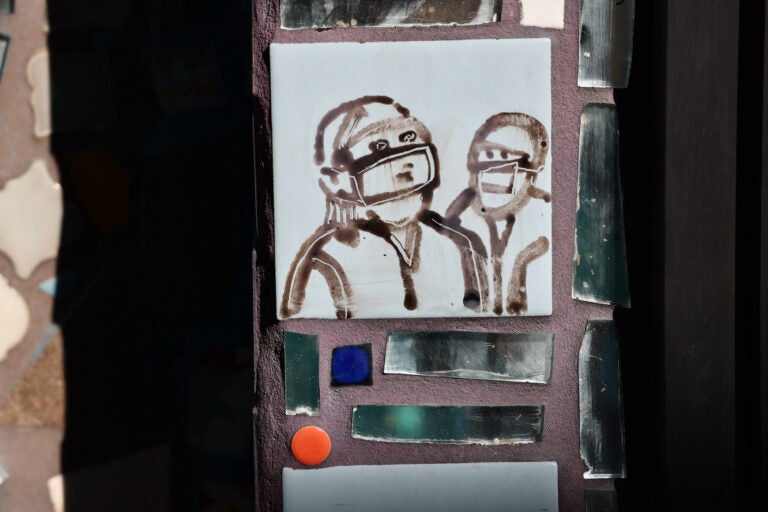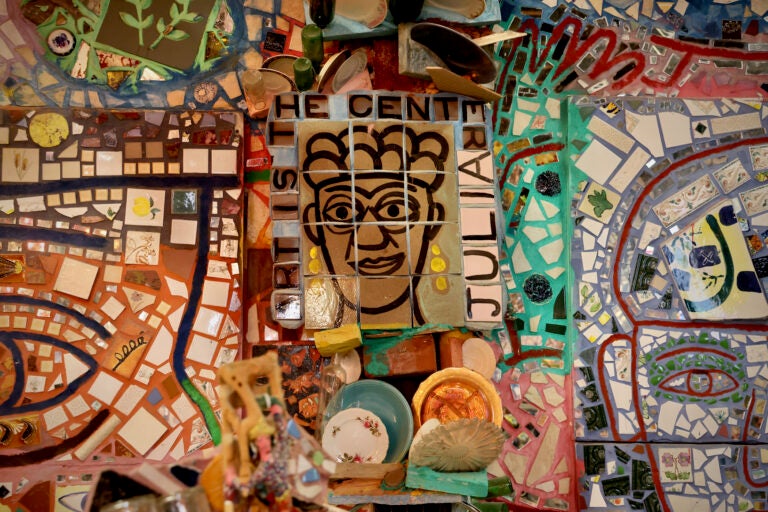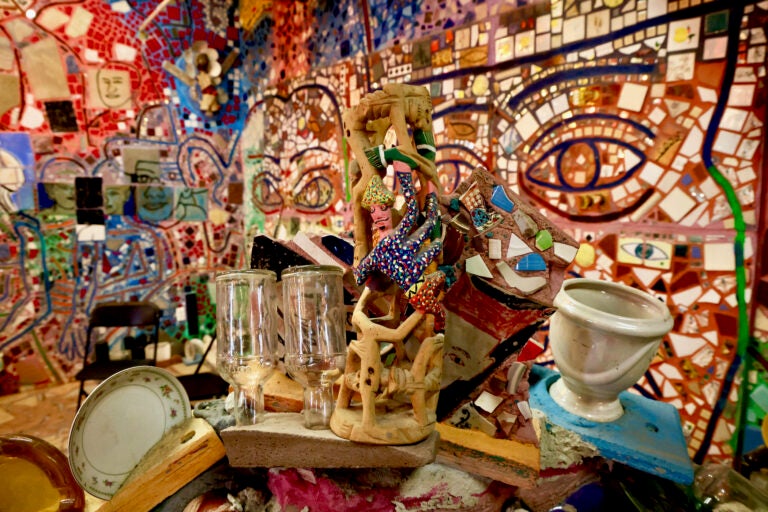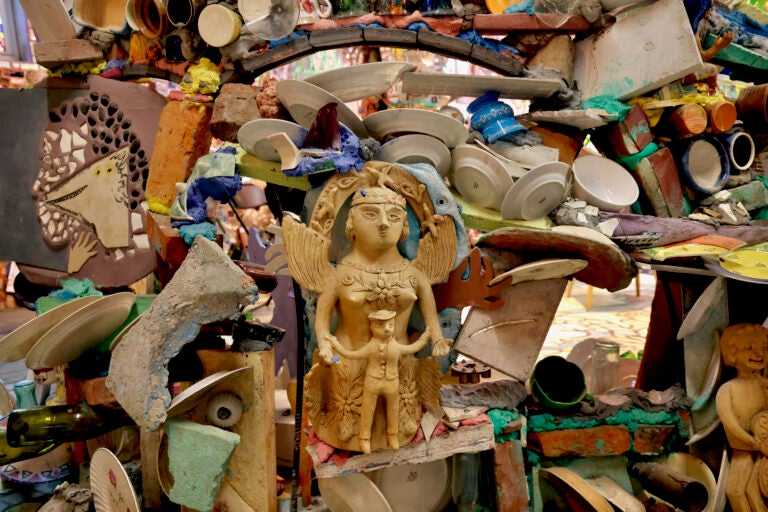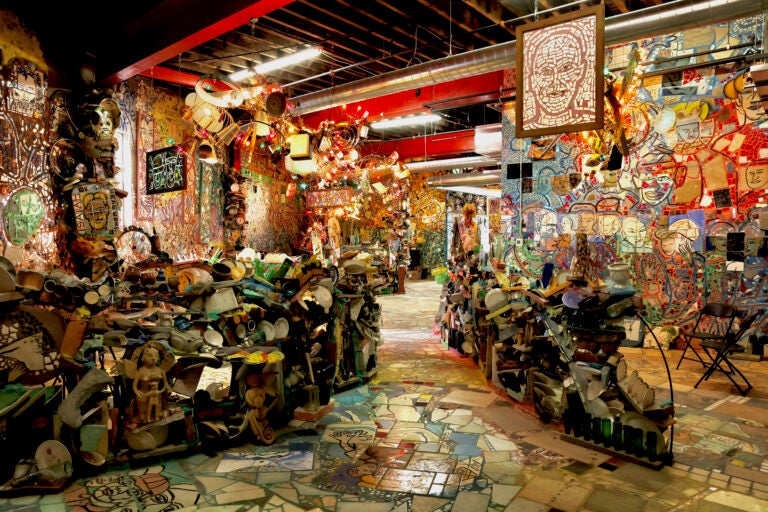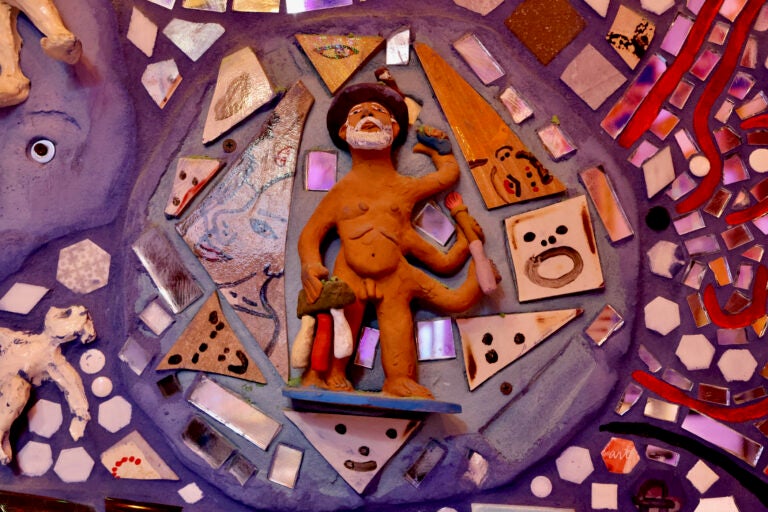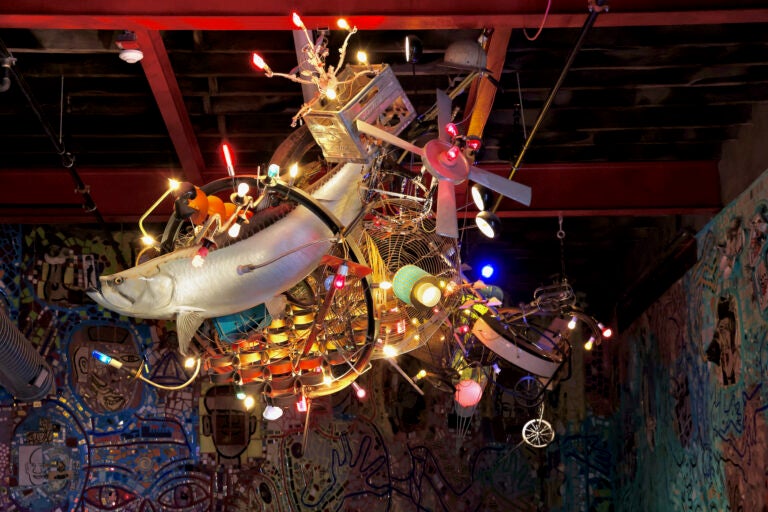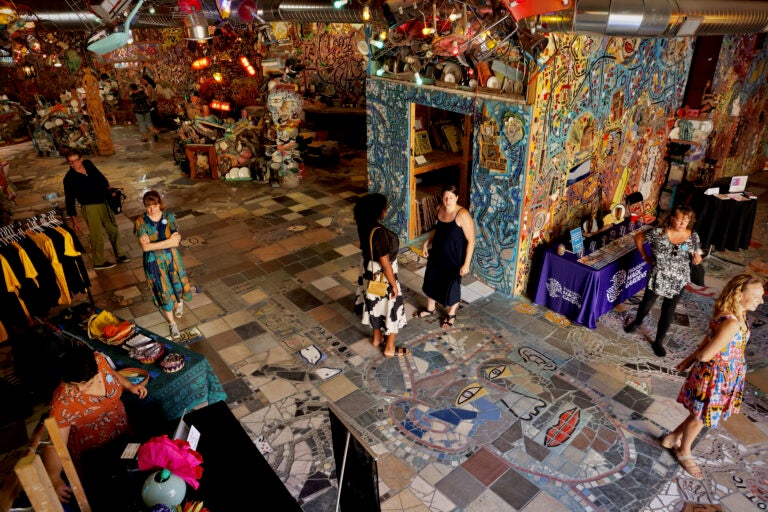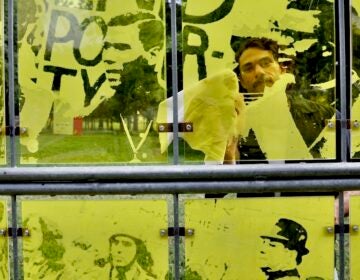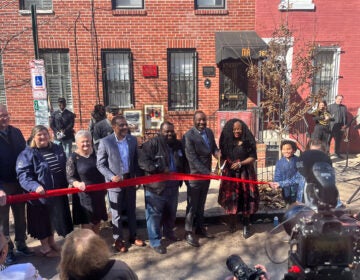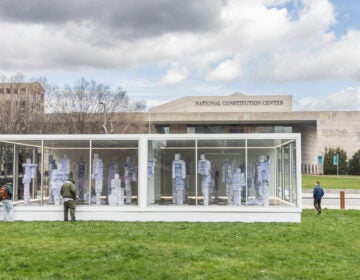Isaiah Zagar’s Magic Gardens takes over a second mosaic space in South Philly
After his Magic Gardens went public, Zagar spent 15 years working on another art environment. It is now opening to the public.
From Philly and the Pa. suburbs to South Jersey and Delaware, what would you like WHYY News to cover? Let us know!
A second Magic Gardens creation by Philadelphia artist Isaiah Zagar is now opening to the public.
Two stories of a former auto warehouse on Watkins Street, a narrow residential street in South Philly near Snyder Avenue and 10th Street, have been transformed into an immersive art environment. Zagar had been working on the site for more than 15 years.
This week, the space is hosting its first public open houses. The first was on Thursday evening, the second will be Saturday afternoon.
Like the original Magic Gardens on South Street, every inch of the floors and walls are covered in broken tiles, broken mirrors, found objects and sculptural pieces. Unlike the original art environment, the Watkins warehouse is an interior space, protected from the elements and allowing for several enormous found-object chandeliers by longtime friend and artist Warren Muller.
The warehouse is larger than the South Street Magic Gardens: about 4,500 square feet compared to about 3,000 square feet. There’s additional space on the second floor of Watkins that is not open to the public, set up as living, office and storage spaces, which Zagar also blanketed with expressive mosaics.
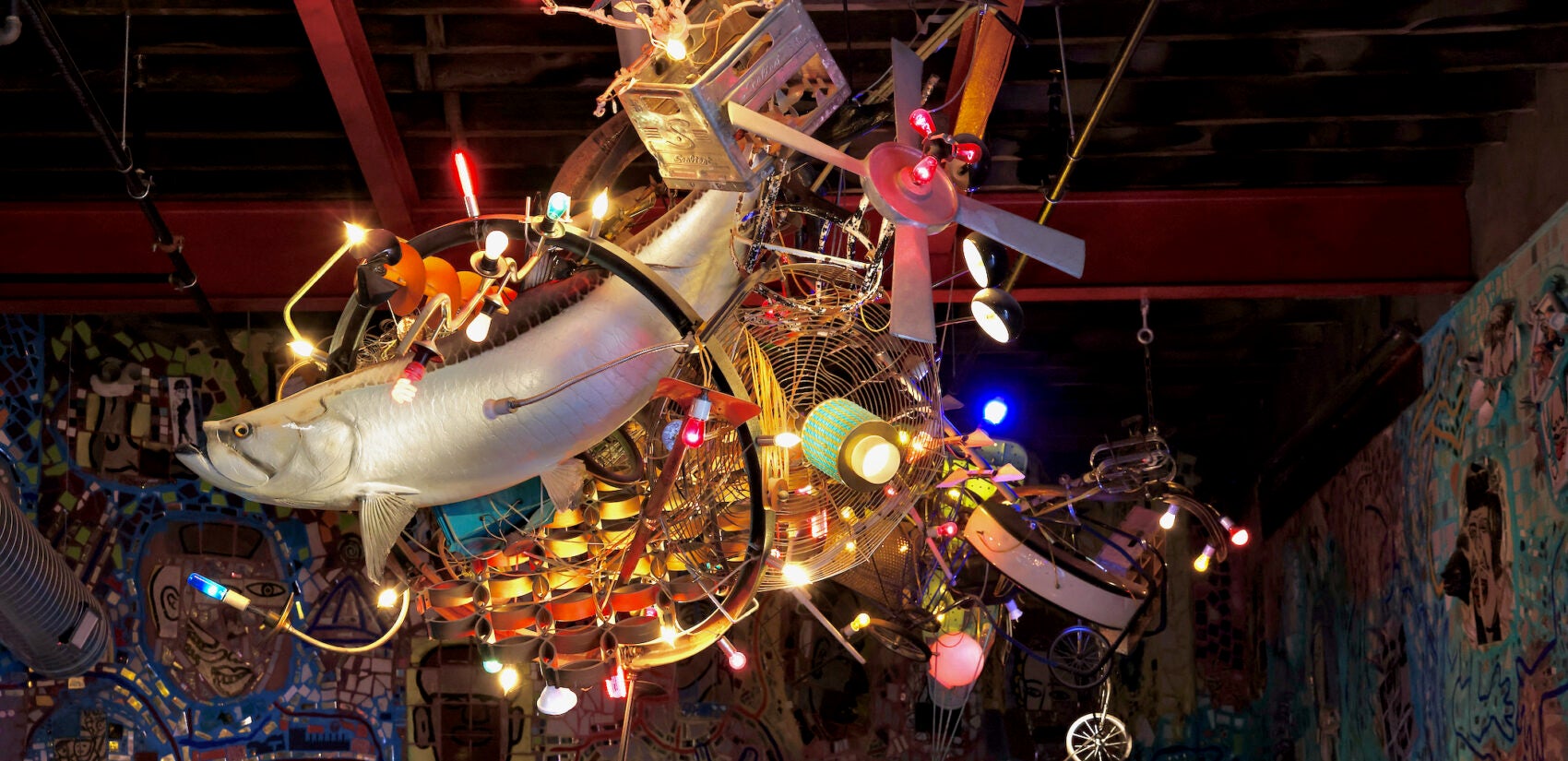
In 2006, just as the Magic Gardens was being saved from the wrecking ball and transforming into a non-profit organization, Zagar bought the warehouse on Watkins, becoming the new vessel for his formidable energies.
Late last year, the Zagars, Isaiah and wife Julia, donated the building to the Magic Gardens organization. Isaiah has been diagnosed with Parkinson’s disease, a degenerative neurological condition which forced him to slow down his work pace almost to nothing.
“He would describe it as finished. There are some unfinished areas, but we’re leaving it this way because he has asked us to leave it that way,” said Magic Gardens Executive Director Emily Smith while showing off the Watkins Street building. “We’re still keeping Isaiah drawing a little bit. We’re still pushing him a bit and he’s going along with us. But large-scale mosaic making, that is definitely a thing of the past.”
Now that Magic Gardens has the building, what is the nonprofit going to do with it? Smith doesn’t yet know.
The open house doubles as a public survey, asking visitors to suggest ways to program the new art space. Because it is fully enclosed from the weather and will eventually have a functioning HVAC system, Smith says it can host events, workshops, lectures, and artists-in-residence.
Smith suggested the space will likely not be open daily for visitors.
“I don’t see it as being the same as the Magic Gardens because it’s not on South Street. It’s on a smaller residential street,” Smith said. “South Street is sort of an entertainment corridor. There’s lots of businesses there. This is a quieter space and we want to respect that.”
The Watkins building emphasizes Zagar’s collaborative artistic process. Rather than the popular story of an eccentric, visionary artist who literally put his hands into dirt and garbage to make fantastic castles, the warehouse is filled with sculptural pieces by other artists that Zagar used to compose his spaces.
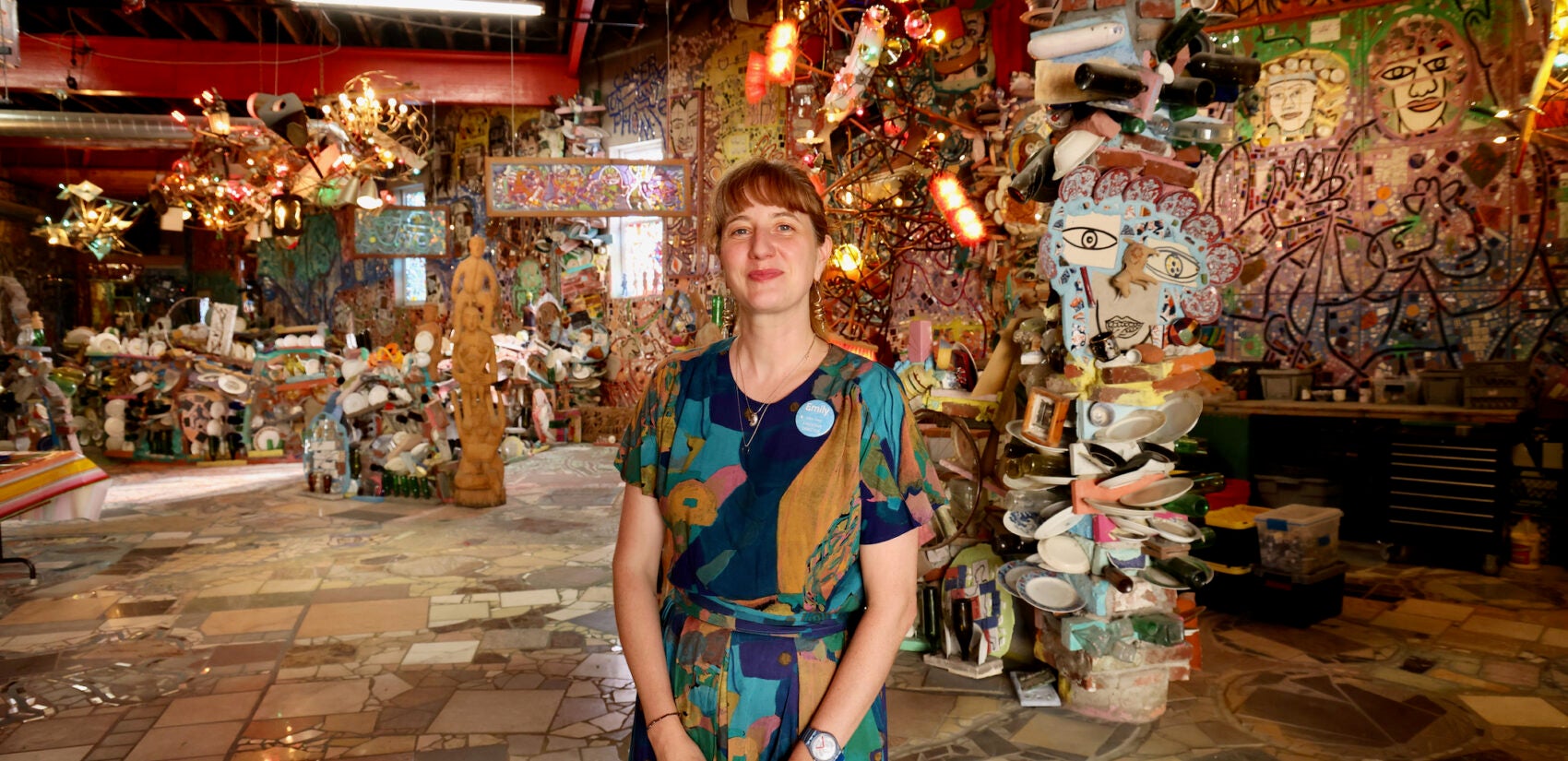
Most prominent are the chandeliers by Muller, one of Zagar’s oldest friends, going back a half-century.
“This space I love so much because of the harmony between Warren and Isaiah,” Smith said. “Their friendship is so important to the Gardens and it’s really important for us to talk about that. They’ve been best friends for all of these years. Warren is an amazing artist on his own, a queer artist here in Philly. He’s still making art.”
“As we age, you want something like that for yourself,” she said. “To have this kind of creative partnership all these years where you’re all taking care of each other in such a beautiful way.”
Smith believes the building also operates as a kind of medical document. During the period when Zagar was working on Watkins, his Parkinson’s disease was developing without yet being diagnosed.
Over 15 years, as his neurological condition worsened, he kept working diligently and, according to Smith, it shows. She can see how his mosaics evolved during that time.
“We’re learning more about Isaiah’s diagnosis with Parkinson’s. We know that this building was made with his brain in Parkinson’s but we didn’t know that at the time. How can we be learning more about that?” she said. “Is that something that could be researched? People could be coming in and learning more about all of it as documented here. That’s so fascinating to me.”
There is still work to be done to bring in climate control, and stabilize some mosaics. Smith believes some kind of public programming is likely by late fall this year.

Saturdays just got more interesting.
WHYY is your source for fact-based, in-depth journalism and information. As a nonprofit organization, we rely on financial support from readers like you. Please give today.



